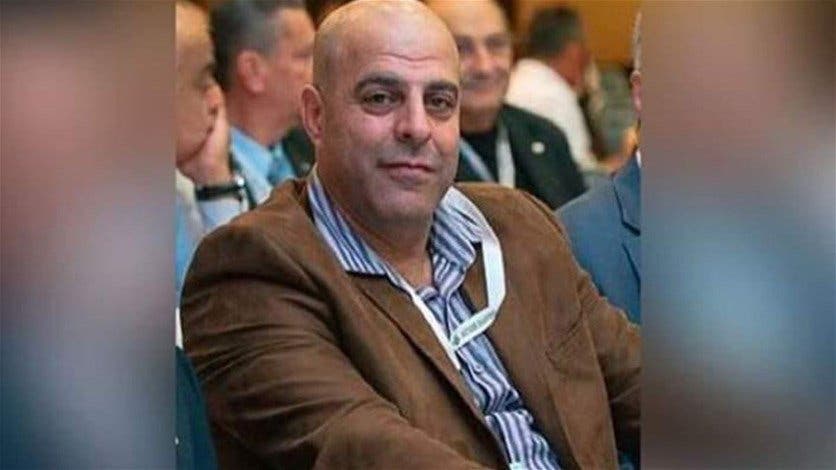US lawsuit filed against Lebanon and its powerful intelligence agency
The head of Lebanon’s General Security may have landed himself and his country in hot water after intervening in a US lawsuit that initially accused Iran of ordering the detainment and detention of a Lebanese-American citizen.
The family of Amer Fakhoury, who had worked with an Israeli-backed militia in southern Lebanon until 2000, is now suing Lebanon, the General Security and its chief, Abbas Ibrahim, who is known for negotiating prisoner swaps and freeing captives, including US citizens.
For the latest headlines, follow our Google News channel online or via the app.
Fakhoury worked as a senior warden at the notorious Khiam Prison in south Lebanon, run by the Israeli-backed South Lebanon Army (SLA), before Israel ended its 18-year occupation in 2000.
His family says he worked at the prison but never had contact with inmates and did not torture prisoners.
Despite being accused by Lebanese officials of torturing prisoners during his time with the SLA, Fakhoury’s lawyer said he was given assurances that he could enter Lebanon after nearly 20 years.
He reportedly met with Lebanon’s president, Michel Aoun, during a visit to Boston before traveling to Lebanon. According to a lawsuit by the family, Fakhoury was also in contact with a member of Aoun’s presidential office.
He was detained in Beirut in September 2019 and released the following March. But a travel ban was placed on him after a military judge appealed the decision.
Nevertheless, he was flown out of the country following a movie-like operation from the US Embassy in Beirut.
Fakhoury died just months after returning to the US.
His family has accused Lebanon’s Iran-backed Hezbollah of being part of Tehran’s order to detain and torture Fakhoury.
“The Iranians were hoping to pressure the Trump Administration to trade the captive American for a Hezbollah operative, Kassim Tajideen, a Lebanese national who was imprisoned in the US for his role in financing Hezbollah terrorist activities around the world,” a statement from Fakhoury’s family and lawyer said on Wednesday.
As a result, Fakhoury’s family sued the government of Iran in a US federal court last year.

Accused Hezbollah financier released by US
Tajideen was arrested in 2017, in Morocco, following an international arrest warrant and then extradited to the US.
Although he was accused of financing Hezbollah, Tajideen only pleaded guilty to charges of evading sanctions imposed on him, not for financing the Iran-backed militia.
He was released by the US in June 2020, a few months after Fakhoury, on compassionate grounds due to the coronavirus pandemic.
Tajideen remains a Specially Designated Global Terrorist by the US Treasury Department, and US citizens are prohibited from working with him.
Lebanon’s General Security head intervenes
While Lebanon enjoys sovereign immunity, making it illegal to be named as a defendant in US courts, a move by the General Security head Abbas Ibrahim may have upended the privilege.
On December 12, Ibrahim filed a motion to strike his name and his agency from the lawsuit against Iran.
“The fact that he filed the motion on behalf of General Security, which is a state institution, has allowed us to pursue him and Lebanon, legally,” Fakhoury’s daughter, Guila, told Al Arabiya English.
“We will not back down, even if they withdraw [their motion], because they were officially part of this. Now, they allowed us to pursue them in court,” she added.
Only a handful of governments can be sued in US courts, which include state sponsors of terrorism. Iran, the country sued by the Fakhoury family, was designated by the US State Department in 1979.
“Remarkably, however, Lebanon and its [General Security chief Abbas Ibrahim] recently filed a motion to intervene in the family’s case against Iran. They are attempting to have their role in the torture of Fakhoury formally stricken from the family’s court papers, arguing that it is scandalous,” the family’s statement read. “By attempting to intervene and appear in the proceedings against Iran, the Lebanese government has become a full-fledged party and has subjected itself to the US Court’s jurisdiction. Thus, the plaintiffs have filed a supplemental complaint naming the Lebanese government as a defendant.”
Al Arabiya English was unable to contact Lebanon’s General Security, and the Lebanese presidency said it was unaware of the lawsuit being brought against the country, Ibrahim and General Security.
“We are dumbfounded that the Lebanese government would decide to intervene and make itself a party to this proceeding with all that this entails. Amazingly, it has now subjected itself and its intelligence agency to the American court’s jurisdiction,” the family’s lawyer said.

